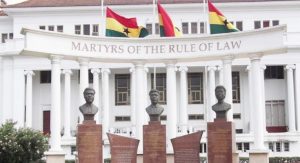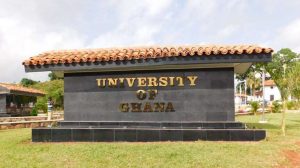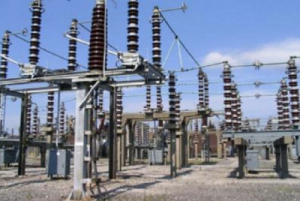SPEECH BY THE PRESIDENT OF THE REPUBLIC OF GHANA,
NANA ADDO DANKWA AKUFO-ADDO,
AT THE “2019 INVESTING IN AFRICA MINING INDABA CONFERENCE”, CAPE TOWN, SOUTH AFRICA, ON MONDAY, 4TH FEBRUARY, 2018, ON THE THEME: “CHAMPIONING AFRICA’S SUSTAINABLE ECONOMIC GROWTH”
I am honoured by the invitation to participate in this famous gathering in the land of Africa’s greatest personality, Nelson ‘Madiba’ Mandela. Now in its 25th year, the Mining Indaba has certainly made its mark as the authoritative place for an exchange of ideas and experiences on mining in Africa. The theme you have chosen for your deliberations, “Championing Africa’s Sustainable Economic Growth”, is certainly attractive enough to bring to Cape Town all of us who have the transformation of Africa at heart.
Ladies and gentlemen, with our continent having been blessed with so many minerals, it is not surprising that mining has always played an important role in our lives. For centuries, our minerals have been the attraction for adventurers and fortune seekers. Many foreign thrones and crowns are adorned with the gems taken from our lands, not always through straightforward means.
Our lands have been fought over and shared, and divided along lines that show no rhyme or reason. The pursuit of gold and other minerals has reduced many of our forests to degraded lands, some of our rivers to polluted water bodies, and diamonds from our lands are now labelled blood diamonds.
It is no wonder, therefore, that some describe these minerals as curses, instead of the blessing and good fortune they should be.
The truth, however, is that mining is a necessity, and not just an indulgence to satisfy aesthetics or curiosity. Mining has been an important undertaking throughout the history of mankind. Everyday life is very dependent on the minerals extracted from underneath the earth.
Today, most of the things that we use, ranging from the smartphones we own, to the coins we spend, to the electricity we consume, emanate from metals and minerals that have been mined. The mining industry, in many of our countries, plays a critical role in our economies, providing considerable job opportunities.
After centuries of exploitation, Africa, currently, is still home to 30% of the world’s mineral reserves, and an even higher proportion of deposits of gold, platinum, diamonds, bauxite and manganese. The story of mining in Africa has not always been a happy one. The irony is not lost on many that our continent, so rich in the minerals that are sought after by the world, should remain inhabited by the poorest people on the globe. The irony is not lost on many that many of the areas from where the riches are mined, look like the most deprived places on earth.
There is no question but that African countries have not always done well in the negotiations with the companies that have mined our minerals. We have been handicapped in the negotiation process with the big mining companies because of political instability, bad reputation, and, sometimes, incompetent and/or corrupt representatives who negotiate on our behalf.
The world has changed a lot since the early mining contracts were drawn. Today, we are a more politically stable continent, and more committed to the rule of law, and, thus, mining companies cannot and should not stick to the perception of the “high risk, politically unstable place to do business” label. Some labour practices that were tolerated a hundred, even 20 years ago, cannot and should not be tolerated today.
The distinguished, venerable Festus Mogae, former President of the Republic of Botswana, speaking at a meeting of the Africa Development Bank (ADB), ten years ago in December 2008, noted that, previously, African countries had to entice investors by granting incentives such as extensive tax and royalty exemptions. Consequently, many countries earned very little from such contracts.
Ladies and gentlemen, I believe we have come of age, and we should not have to give unusual tax and royalty incentives, and mining companies should not expect to make extraordinary profits on our continent.
We are realistic enough to know that the companies that come to do business must make their profit. But, we want to work with them under the normal conditions that pertain in other parts of the world.
It bears repeating here what I have said elsewhere: Africa needs her own set of smart, tough lawyers, accountants and engineers to negotiate the business deals in a transparent and honest manner. We must strike deals that are fair to both sides, and can reassure the long-suffering African people that they are no longer being unfairly treated.
Reviewing mining contracts is important for more than earning greater revenues. Governments must also respond to pressures from civil society groups and communities to ensure that contracts and mining codes address environmental protection, adequate compensation to affected communities, and the rehabilitation of land after mining operations have ceased.
Minerals are a public resource, and the negotiations between countries and companies should be transparent, accessible and easily understandable by citizens, and that means we should do it all in language that does not need to be interpreted by experts. Communities should be able to examine mining contracts, find out how much revenue has been generated, and how, and on what it is being spent.
Long and bitter experience means both sides, African governments and mining companies, have to work hard to gain the trust of the people.
One cannot discount the illuminating report produced by a High-Level Panel, chaired by the highly respected former President of this country, His Excellency Thabo Mbeki, which states that Africa is losing, annually, more than $50 billion through illicit financial outflows. The Report of the High-Level Panel on Illicit Financial Flows from Africa, commissioned by the Joint African Union Commission and United Nations Economic Commission for Africa Conference of African Ministers for Finance, Planning and Economic Development, revealed, in particular, that, between 2000 and 2008, $252 billion, representing 56.2%, of the illicit flow of funds from the continent, was from the extractive industries, including mining.
And, yet we know that the extractive sector, particularly mining, can help rapidly to grow Africa’s manufacturing sector, and be the champion of economic growth on the continent. That, of course, will not happen if Africa remains the place to come and dig minerals that are exported in their raw condition to be processed outside.
We cannot, and should not continue to be merely exporters of raw materials to other countries. The value chain of mineral extraction has great potential for job-creation, and can form an essential basis for the transformation of economies around the continent.
We recognise that transparency and regulation of invested capital in junior mining companies underpin investment appeal. Over the years, our mining sector has been financed by capital markets on foreign exchanges. They have leveraged access to early-stage investments to create significant wealth for investors offshore. The fact of the matter is that local capital, within most mining jurisdictions in Africa, face geo-political constraints in the funding of early-stage opportunities in their own countries. Canada, Australia, the Americas and South Africa have spectacular examples of considerable wealth created amongst individuals and corporations as a result of significant discoveries in far-away lands that are financed by early seed capital raised on their local exchanges.
Ghana, undoubtedly, is amongst the most matured and stable mining jurisdictions in Africa, and, for the first time, my Government is putting together a regulatory framework and fiscal incentives to enable local companies list early-stage promising prospects on our local stock exchange, thereby taking full advantage of these incentives. This will allow local capital enjoy the benefits of the upside in project development, and enable it contribute effectively to the process of rapid economic development and transformation.
We are all now more sensitive to the needs of the environment, and the dangers posed by the degradation caused by reckless mining practices. We, in Ghana, have a big problem with a particularly dark side of mining, which has been leading to an alarming degradation of our lands and water bodies.
We have a name for it in Ghana, ‘galamsey’, i.e. illegal mining. Time was when this was a relatively minor practice of individuals digging for gold in their communities, you could almost describe it as romantic, as young people tried their hands at it before moving on to their main profession. Now, it has become a large scale and dangerous operation that has reduced our lands and water bodies to sad spectacles, mainly as a result of the introduction of sophisticated equipment and machinery into the field by foreign-controlled criminal syndicates.
In Ghana, we moved to address this issue by, initially, placing a two-year ban on small-scale mining, upon my assumption of office in January 2017, in order to fashion and implement policies to sanitise the sector, and ensure that, in future, small-scale mining would not damage our environment. We had to train some of the small-scale miners in responsible mining, and find alternative livelihood sources for others who were engaged in illegal-mining. Our efforts have yielded dividends. Some of the heavily polluted rivers are showing signs of being restored to health, and, recently, there was a lot of excitement when fish were seen again in one of the most famous rivers of our country, the Ankobra River, after many years of turbidity. We are determined to strengthen the regulatory framework for mining, so that illegal mining, i.e. galamsey, does not re-appear.
I know that we are not the only ones experiencing this phenomenon, and there are other countries on the continent, where illegal mining activities are threatening to overwhelm local authorities.
The extreme case is, probably, the Democratic Republic of Congo, DRC, where its many minerals are such magnets for adventurers from around the world that they instigate the instability in the country.
Ladies and gentlemen, earlier on I made reference to the state of mining communities in our country.
I believe it is a point that cannot and should not be simply mentioned in passing. Take, for example, the town of Obuasi in Ghana, the home of Anglo Gold Ashanti, where there has been official mining for more than a century. In times past, it was said to be the richest gold mine in the world, and it has certainly made some people in the UK and the US and probably in South Africa too, very rich.
So why does Obuasi not look at all like the place from where hundreds of millions of dollars have been made? It should be the most beautiful city in Ghana or the world, if it hosts the richest gold mine, but it is far from it. After an absence of some five years from the scene because of the uncontrolled activities of illegal miners on its concession, the company is back again. I had the pleasure of reopening the mine two weeks ago, on 22nd January, 2019, under an agreement that balances more fairly the interests of the two sides, that is the Government of Ghana and AngloGold Ashanti. As I said at the ceremony, it is my hope and expectation that, this time round, under the new management of AngloGold Ashanti, the development of Obuasi will reflect the wealth its soil produces.
Why is the Kono region of Sierra Leone, where a local pastor digging around his garden can still find a 709-carat gem diamond, not developed and prosperous? Why do towns from whose soils diamonds have been taken all these years not look anything like they produce riches? Why are the mining communities generally in such poor conditions? The distressed state of communities in which mining companies operate is nothing short of a disgrace, and we must work to change that situation.
Even though a few mining companies have, over the years, complemented the work of government in these communities, I am certain that a lot more can be done to transform the communities if government and the mining companies collaborate in an intelligent and sustainable manner.
Ladies and gentlemen, the mining industry has what it takes to help make the economic transformation we seek in Africa. Go to any mine and it is obvious you are innovators, you are persistent, and you have expertise. How else do you find the minerals you seek from the bowels of the earth? You are hard workers and it shows in what you do.
In addition to the exploitation of the traditional minerals of gold, diamond and manganese in Ghana, we have also taken the decision, at long last, to exploit our considerable bauxite and iron ore deposits. We have established the Ghana Integrated Aluminium Development Corporation, a public corporation, to take charge of the development, with appropriate investors, of the full value chain of our bauxite resources in order to establish an integrated aluminium industry in Ghana. We are also determined to build an integrated iron and steel industry, out of our extensive iron ore and manganese deposits, to serve the needs of our country and region, and, to that end, Parliament, in its current session, will consider and, hopefully, approve the establishment of another public corporation, the Ghana Integrated Iron and Steel Development Corporation, which will, with appropriate investors, take charge of this undertaking. Another modern mineral, lithium, which is being used in several applications, is present in commercial quantities in Ghana. Work is currently underway, again with the appropriate investment, to exploit it for the economic development of our country. We hope to establish, in all these new ventures, an equitable balance between our needs and the needs of the investor community. It is time for the minerals sector to produce win-win situations for all stakeholders.
I do not need to tell you that there are undiscovered riches inside the bowels of the lands in Africa, but I want to remind you that there are riches on top of the lands also in the form of a young, vibrant and dynamic population who are anxious to work, and who, with the requisite skill, represent an extremely positive factor in the rapid development of the continent.
We want you to stay here for the long term, respect the land that provides the riches and be part of the transformation. Africa has made the world rich with our minerals, our gemstones adorn crowns and homes around the world, it is time to make Africa prosperous, and enable her people to attain a dignified standard of living. Join us in this exciting project for sustainable economic growth.
The people of Africa do not have to be poor for others to be rich. The state of modern technology has made it possible, probably for the first time in human history, to establish a global economy which can generate shared and mutually reinforcing prosperity for all the peoples of the planet. The world can, then, look forward to the emergence of a new world civilisation which, shorn of greed and cupidity, has boundless prospects for human advancement, where the overwhelming majority of mankind can live in dignity and security, and give birth to a new, extraordinary golden age, where the arts, culture, philosophy, science and technology can flourish on an unprecedented scale.
I thank you very much for your attention.






